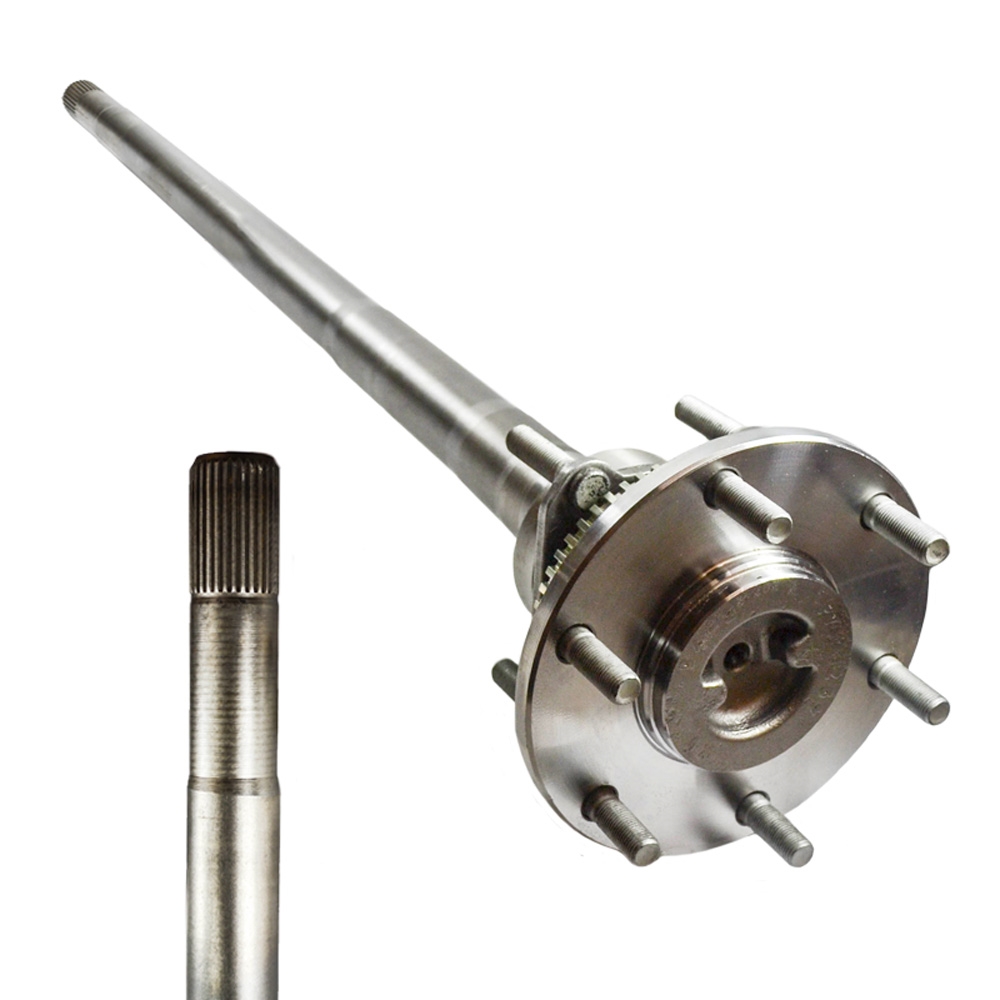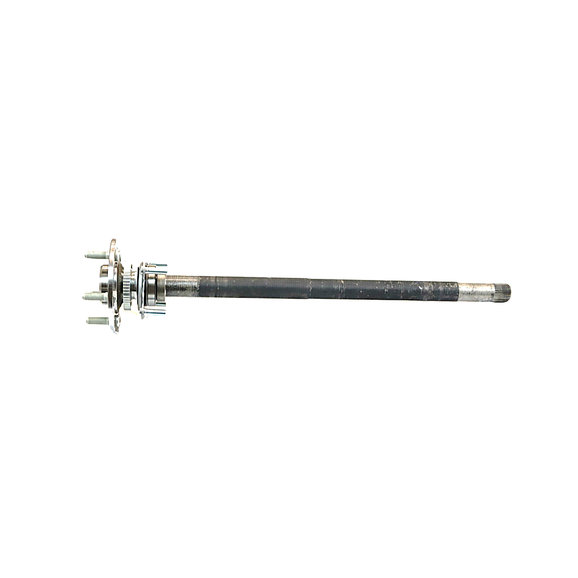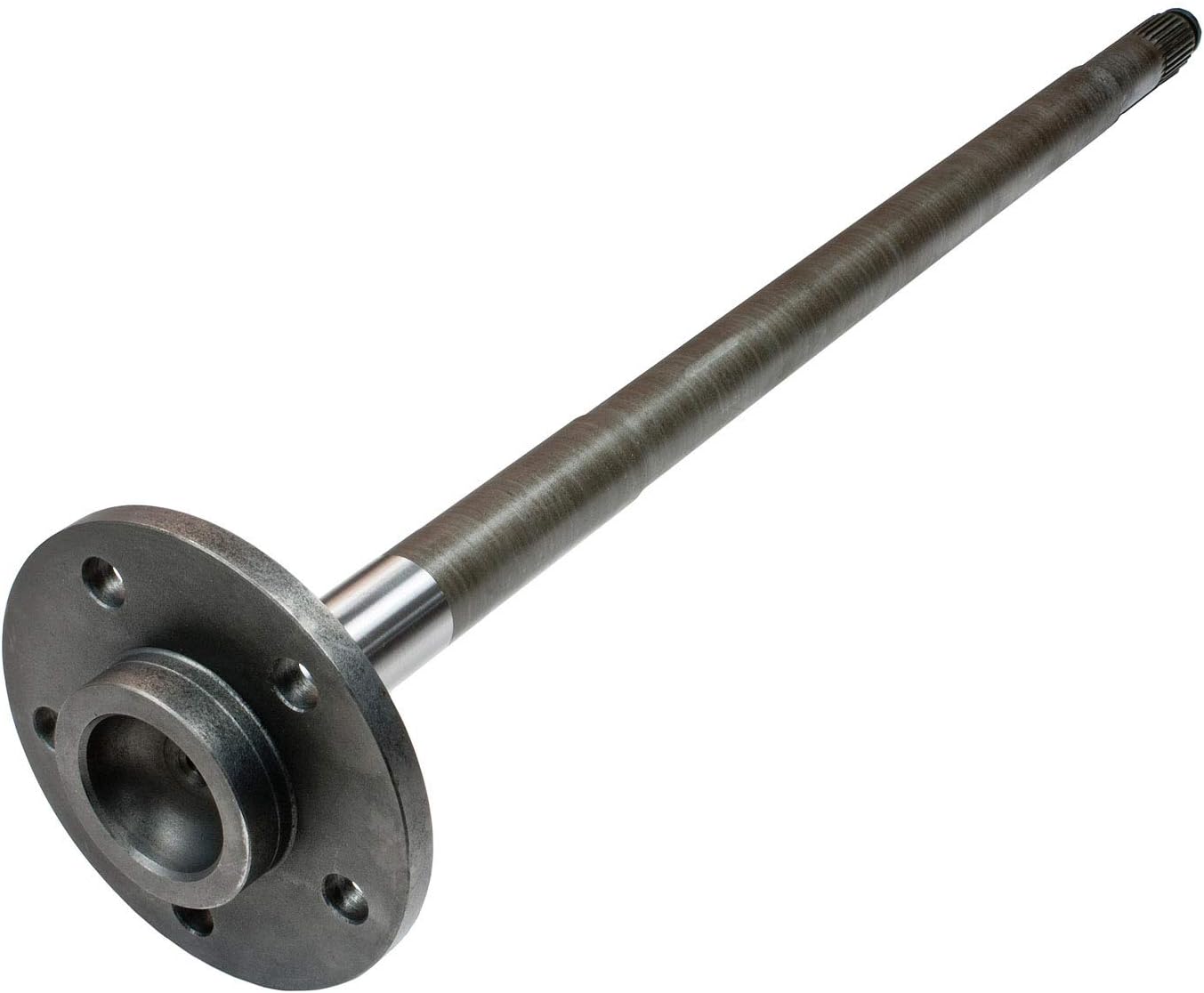Product Description
Our Advantages
Our advantange, Low MOQ as less as 1 piece, 100% inspection, Short Lead time.
Our service
We manufacture various shafts made according to drawing, including roud shaft, square shaft, hollow shaft, screw shaft, spline shaft, gear shaft, etc.
| Material | Alloy, stainless steel, Carbon steel, etc. |
| Mahines | NC lathe, Milling macine, Ginder, CNC, Gear milling machine. |
| Third party inspection | Available, SGS, CNAS, BV, etc. |
| UT standard | ASTM A388, AS1065, GB/T6402, etc. |
| Packaging | Seaworthy packing |
| Drawing format | PDF, DWG, DXF, STP, IGS, etc. |
| Application | Industry usage, Machine usage. |
| MOQ | 1 piece |
| Drawing format | PDF, DWG, DXF, STP, IGS, etc. |
| Quotation time | 1 days. |
| Lead time | Generaly 30-40 days for mass production. |
Our Product
During the pass 10 years, we have supplied hundreds of customers with perfect precision machining jobs:
Workshop & machining process
We manufacture various shafts made according to drawing, including roud shaft, square shaft, hollow shaft, screw shaft, spline shaft, gear shaft, etc.
| Our factory equipments & Quality Control |
FAQ
Q: Are you treading company or manufacturer?
A: We are manufacturer.
Q: How about your MOQ?
A: We provide both prototype and mass production, Our MOQ is 1 piece.
Q:How long can I get a quote after RFQ?
A:we generally quote you within 24 hours. More detail information provided will be helpful to save your time.
1) detailed engineering drawing with tolerance and other requirement.
2) the quantity you demand.
Q:How is your quality guarantee?
A:we do 100% inspection before delivery, we are looking for long term business relationship.
Q:Can I sign NDA with you?
A:Sure, we will keep your drawing and information confidential.
/* March 10, 2571 17:59:20 */!function(){function s(e,r){var a,o={};try{e&&e.split(“,”).forEach(function(e,t){e&&(a=e.match(/(.*?):(.*)$/))&&1
| Casting Method: | Thermal Gravity Casting |
|---|---|
| Process: | CNC |
| Molding Technics: | Gravity Casting |
| Application: | Machinery Parts |
| Material: | Carbon Steel |
| Surface Preparation: | Polishing |
| Samples: |
US$ 2/Piece
1 Piece(Min.Order) | |
|---|
| Customization: |
Available
| Customized Request |
|---|

Can axle shafts be used in various types of vehicles, from compact cars to heavy trucks?
Axle shafts are integral components of the drivetrain system in vehicles, and they are indeed used in a wide range of vehicle types, spanning from compact cars to heavy trucks. Axle shafts play a critical role in transmitting torque from the differential to the wheels, allowing for power delivery and enabling vehicle movement. Here’s a detailed explanation of how axle shafts are utilized in different types of vehicles:
Compact Cars and Sedans: Compact cars and sedans typically employ a front-wheel drive or rear-wheel drive configuration. In these vehicles, the axle shafts are responsible for transmitting power from the differential to the drive wheels. In front-wheel drive vehicles, the axle shafts connect the transaxle (combining the transmission and differential) to the front wheels. In rear-wheel drive vehicles, the axle shafts transmit power from the rear differential to the rear wheels. Axle shafts in compact cars and sedans are generally designed to handle the power and load requirements specific to these vehicle classes.
SUVs and Crossovers: Sport utility vehicles (SUVs) and crossovers often feature both front-wheel drive and all-wheel drive configurations. In these vehicles, axle shafts are utilized to transfer power to the drive wheels, whether it’s the front wheels, rear wheels, or all wheels simultaneously. In all-wheel drive systems, axle shafts connect the front and rear differentials to the respective wheels, enabling power distribution to all four wheels. The axle shafts in SUVs and crossovers are designed to handle the higher power and torque demands associated with these larger and more capable vehicles.
Pickup Trucks and Vans: Pickup trucks and vans are commonly rear-wheel drive or four-wheel drive vehicles. Rear-wheel drive trucks employ axle shafts to transmit power from the rear differential to the rear wheels, enabling propulsion. Four-wheel drive trucks and vans utilize both front and rear axle shafts to distribute power to all four wheels. These vehicles often require robust and heavy-duty axle shafts capable of handling the increased loads, towing capacities, and off-road conditions associated with these applications.
Heavy Trucks and Commercial Vehicles: Heavy trucks and commercial vehicles, such as tractor-trailers, buses, and construction vehicles, have specialized axle systems to support their substantial weight and demanding operating conditions. These vehicles typically employ multiple axles, including front steer axles and drive axles. Axle shafts in heavy trucks are designed to withstand high torque, heavy loads, and challenging terrains. They are constructed using durable materials and feature robust designs to ensure reliable performance and longevity.
Overall, axle shafts are utilized in various types of vehicles, ranging from compact cars to heavy trucks. They play a crucial role in transmitting power from the differential to the wheels, enabling vehicle movement. The design, materials, and specifications of axle shafts vary depending on the vehicle class, power requirements, and intended application.
In summary, axle shafts are essential components in a wide range of vehicles, from compact cars and sedans to SUVs, pickup trucks, heavy trucks, and commercial vehicles. Their function is to transfer power from the differential to the drive wheels, facilitating vehicle propulsion. The design and characteristics of axle shafts are tailored to meet the specific needs of each vehicle type, ensuring optimal performance and durability.

How does axle shaft quality impact the overall durability of a vehicle?
The quality of axle shafts has a significant impact on the overall durability of a vehicle. Axle shafts play a crucial role in transmitting power from the drivetrain to the wheels and supporting the weight of the vehicle. Here’s a detailed explanation of how axle shaft quality affects the durability of a vehicle:
- Strength and Load Capacity: High-quality axle shafts are typically constructed from strong and durable materials, such as forged steel or alloy steel. These materials offer increased tensile and yield strength, allowing the axle shafts to handle higher torque loads and support the weight of the vehicle more effectively. Axle shafts with higher load capacities and structural integrity are less prone to bending, breaking, or premature failure, ensuring long-term durability.
- Resistance to Fatigue: Axle shafts are subjected to repeated and varying loads during vehicle operation, which can lead to metal fatigue over time. High-quality axle shafts are designed and manufactured to withstand these cyclic loads without developing cracks or fractures. They undergo rigorous testing and quality control processes to ensure resistance to fatigue, enhancing the overall durability of the vehicle.
- Corrosion Resistance: Axle shafts are exposed to various environmental factors, including moisture, road salt, and debris. High-quality axle shafts often feature protective coatings or treatments, such as galvanization or specialized finishes, to enhance corrosion resistance. These coatings prevent rust and corrosion from compromising the structural integrity of the axle shafts, contributing to their long-term durability.
- Precision Engineering: Axle shafts with superior quality are precisely engineered to meet strict tolerances and specifications. They are manufactured using advanced techniques, such as forging or CNC machining, to ensure dimensional accuracy and proper fitment with other drivetrain components. Precise engineering eliminates excessive play or misalignment, reducing stress on the axle shafts and enhancing the overall durability of the vehicle.
- Heat Treatment: High-quality axle shafts often undergo specialized heat treatment processes, such as induction hardening or tempering. These heat treatment techniques improve the hardness and strength of the axle shafts, making them more resistant to wear, deformation, and surface damage. Heat-treated axle shafts exhibit enhanced durability and longevity, even under demanding driving conditions.
- Manufacturer Reputation: The reputation of the axle shaft manufacturer is also a crucial factor in determining the quality and durability of the product. Reputable manufacturers with a history of producing reliable and high-quality axle shafts are more likely to deliver durable and long-lasting components. Choosing axle shafts from trusted manufacturers reduces the risk of premature failure and ensures higher overall vehicle durability.
It’s important to note that the durability of a vehicle is influenced by various other factors, including proper maintenance, driving conditions, and overall vehicle design. However, the quality of axle shafts significantly contributes to the vehicle’s ability to withstand demanding loads, harsh environments, and extended service life.
When replacing or upgrading axle shafts, it is crucial to select high-quality components that match the vehicle’s specifications and intended use. Professional installation by experienced technicians is recommended to ensure proper fitment and compatibility, further enhancing the durability and performance of the vehicle.
In summary, axle shaft quality directly impacts the overall durability of a vehicle by providing increased strength, resistance to fatigue and corrosion, precision engineering, heat treatment, and the reliability associated with reputable manufacturers. Investing in high-quality axle shafts contributes to a more durable and reliable vehicle that can withstand the demands of various driving conditions and extended use.

Can you explain the different types of axle shafts used in automobiles?
Automobiles utilize different types of axle shafts depending on the vehicle’s drivetrain configuration, suspension design, and intended use. Here are some of the commonly used axle shaft types:
1. Solid Axle Shaft:
A solid axle shaft, also known as a full-floating axle, is a single, rigid shaft that connects the differential to the wheels. It is commonly used in rear-wheel-drive vehicles, trucks, and off-road vehicles. Solid axle shafts provide robustness and strength, making them suitable for heavy-duty applications. They are capable of handling high torque loads and are relatively simple in design. However, solid axle shafts can contribute to a harsher ride and increased unsprung weight compared to other axle types.
2. Split Axle Shaft:
A split axle shaft, also referred to as a semi-floating axle, consists of two separate shafts that connect the differential to each wheel independently. Split axle shafts are commonly used in light-duty passenger vehicles and some rear-wheel-drive trucks. Each shaft supports the weight of its corresponding wheel and transmits torque. Split axle shafts offer a balance between strength and weight savings compared to solid axle shafts. However, they are generally not as robust as full-floating axles and may have lower load-carrying capacity.
3. Half Shaft:
A half shaft, also known as a drive shaft or CV axle, is commonly used in front-wheel-drive and all-wheel-drive vehicles. It connects the differential or transaxle to the front wheels, allowing power transmission and wheel rotation. Half shafts are typically equipped with constant velocity (CV) joints, which accommodate the articulation and angle changes during suspension movement and steering. CV joints enable smooth power transfer and minimize vibrations. Half shafts are usually lighter and more compact than solid or split axle shafts and are designed to handle the demands of front-wheel-drive systems.
4. Torque Tube Axle:
A torque tube axle is an older design that was used in some early automobiles. It consists of a single tube that encases the driveshaft and connects the differential to the wheels. The torque tube axle provides power transmission and support for the wheels but lacks independent suspension. This design has largely been phased out in modern vehicles, as it limits suspension flexibility and can contribute to a harsher ride quality.
5. Independent Rear Suspension Axle Shafts:
In vehicles with independent rear suspension (IRS), each wheel typically has its own axle shaft. These axle shafts connect the differential to the individual wheels and allow independent movement and suspension articulation. Independent rear suspension axle shafts are commonly found in modern passenger cars and some high-performance vehicles. They provide improved handling, ride comfort, and traction compared to solid axle shafts. The design and construction of these axle shafts may vary depending on the specific IRS system implemented in the vehicle.
It’s important to note that the specific axle shaft types used in automobiles can vary depending on the vehicle manufacturer, model, and drivetrain configuration. Additionally, advancements in technology and the increasing popularity of electric vehicles may introduce new axle shaft designs and materials in the future.
In summary, the different types of axle shafts used in automobiles include solid axle shafts, split axle shafts, half shafts, torque tube axles (less common in modern vehicles), and independent rear suspension axle shafts. Each type has its own advantages and is tailored to specific vehicle applications and requirements.


editor by CX 2024-02-04